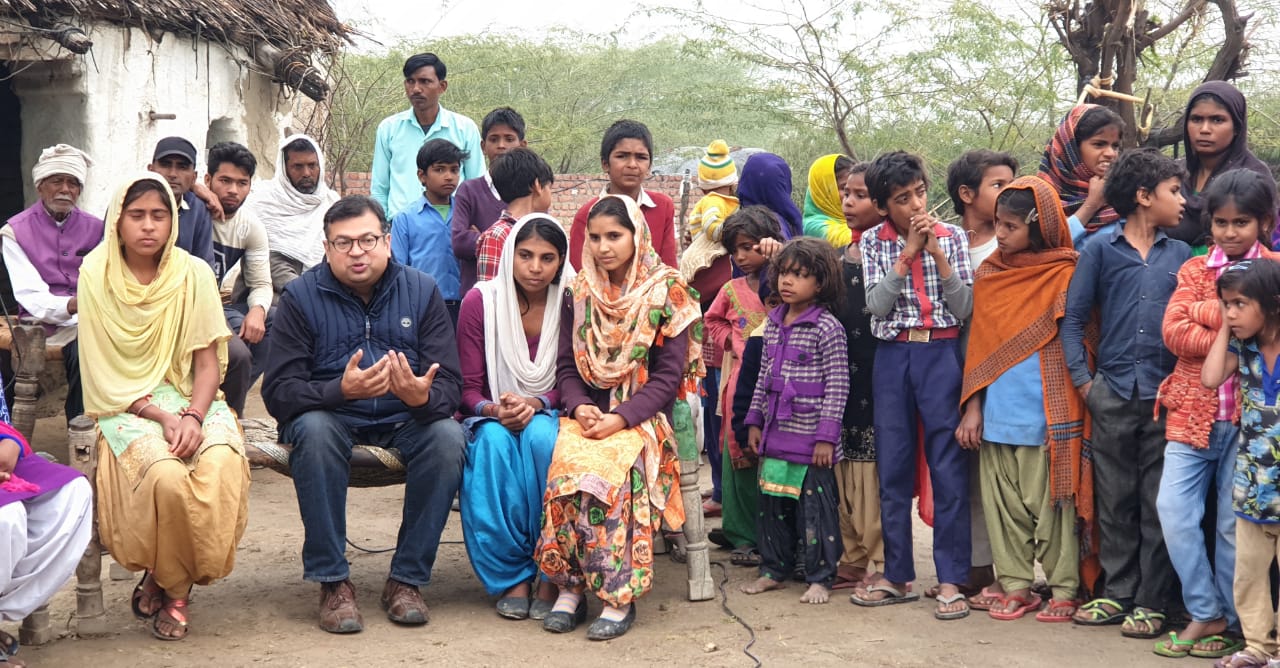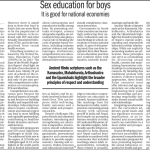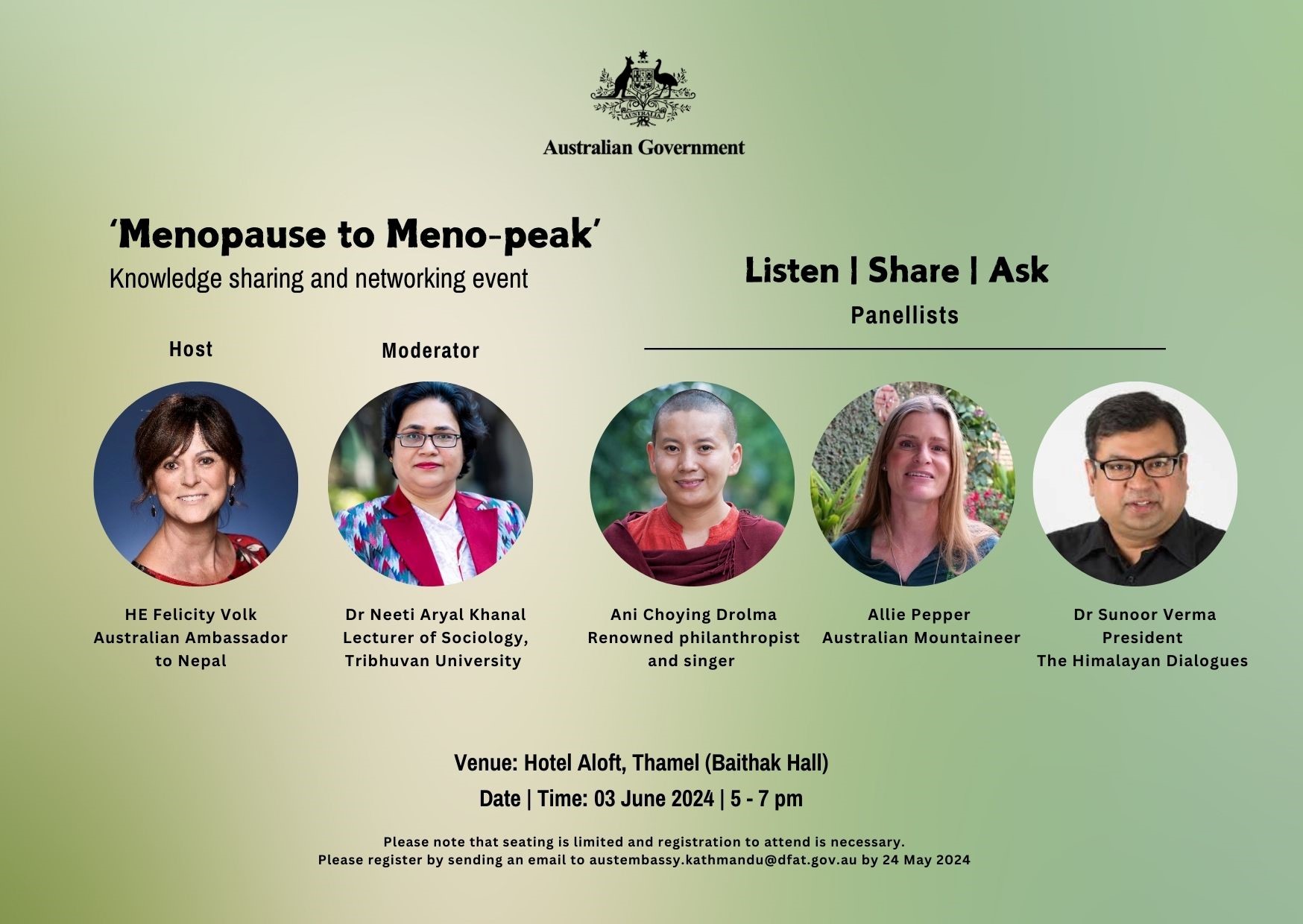
Picture courtesy Australian Embassy Nepal
Here I was, walking into the meeting hall for the Australian Embassy Kathmandu‘s “Menopause to Meno-peak” seminar, when I bumped into an acquaintance. Her greeting was as blunt as it was good-natured: “You? A man? On a menopause panel?” A fantastic start, I thought, for the lone male panelist on an all-star female team, especially considering the topic!
Truth be told, from the moment I accepted Ambassador Felicity Volk‘s invitation, I felt a similar sense of exhilaration (and maybe a touch of panic) as when you score a last-minute business class upgrade at check-in, only to realize you’re in your shorts and flip-flops!
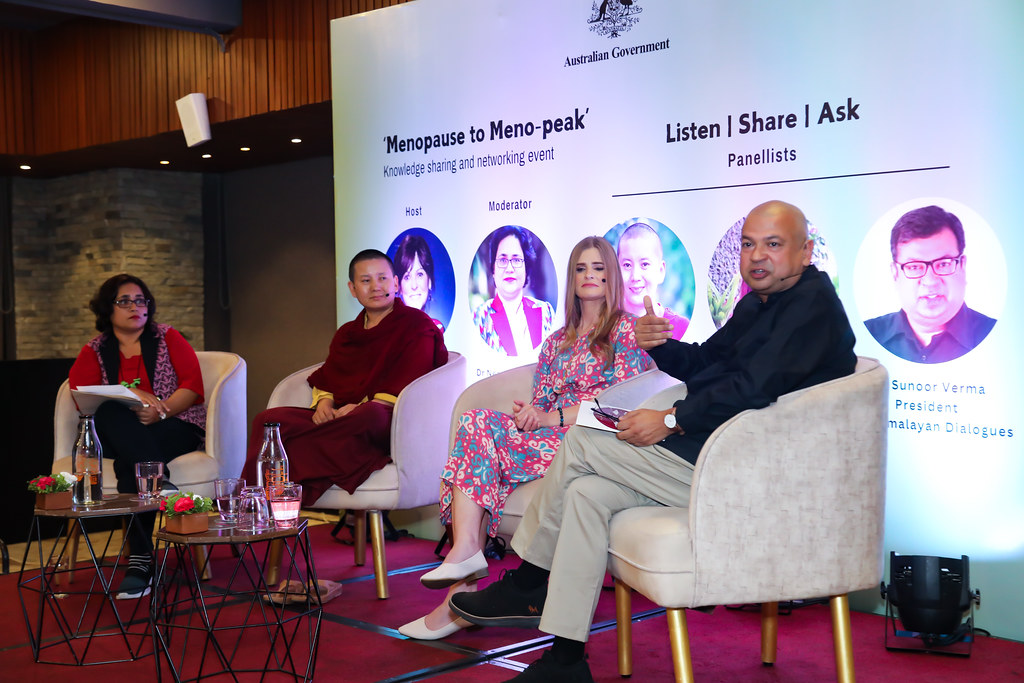
Picture courtesy Australian Embassy Nepal
But any initial awkwardness melted away when I met my co-panelists. Ani Choying Drolma, the world-famous Buddhist Singing Nun, and Allie Pepper , the mountaineer who conquers peaks without supplemental oxygen to raise awareness about menopause and inspire women. These were powerhouse women, and I was about to embark on a truly unique conversation.
The audience was just as inspiring—a diverse mix of activists, policymakers, politicians, lawyers, health experts, and media of all ages and genders. Their questions during the Q&A session were as sharp as they were insightful, sparking a truly dynamic exchange.
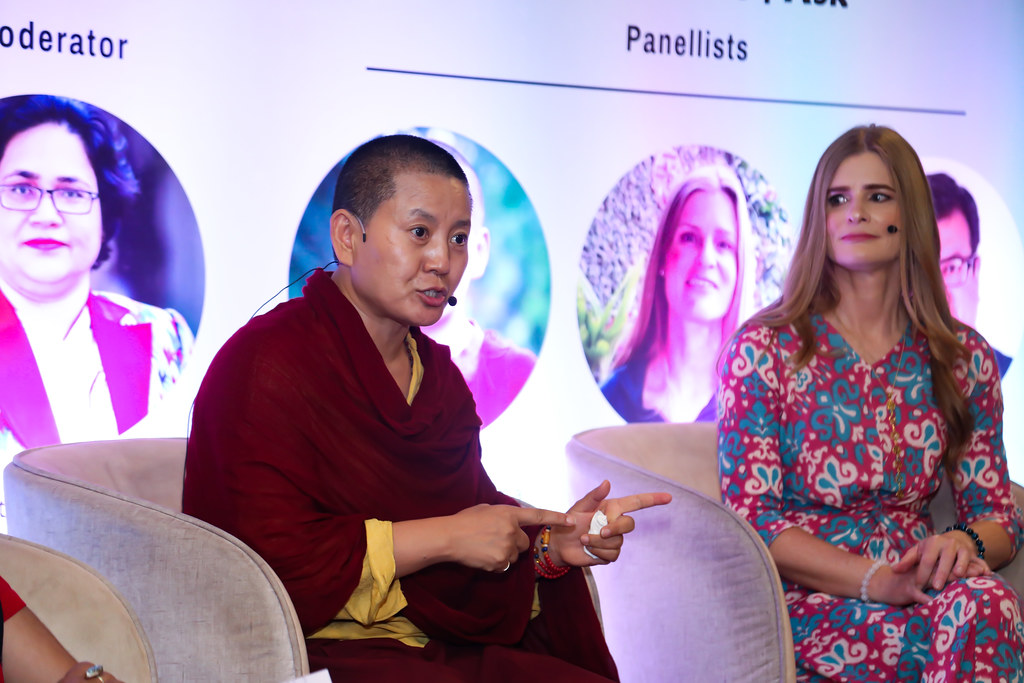 Ani Choying Drolma on her journey and menopause. Picture courtesy Australian Embassy Nepal
Ani Choying Drolma on her journey and menopause. Picture courtesy Australian Embassy Nepal
One particularly powerful moment came when Ani Choying Drolma shared her experiences with menopause. In many countries, faith and sexual and reproductive health are seen as opposing concepts. Ani’s courage in speaking openly highlighted the critical need for bridges between these areas. Her talk was a call to action, paving the way for partnerships to empower women on a deeper level.
 HE Ambassador Felicity Volk, host of this brave discussion. Picture courtesy Australian Embassy Nepal
HE Ambassador Felicity Volk, host of this brave discussion. Picture courtesy Australian Embassy Nepal
Ambassador Felicity Volk‘s point about integrating #menopause knowledge into existing medical practices resonated deeply in her welcome remarks. We don’t need a whole new breed of specialists but a broader understanding among all health practitioners.
Being the only man on the panel also brought a dose of self-reflection. When the ace moderator Neeti Aryal Khanal, PhD asked how I felt, I confessed to feeling hyper-aware of #mansplaining, #manspreading, and all the other “man” faux pas! It gave me a heightened sense of being on the margins, similar to how many women might feel navigating traditionally male-dominated spaces, especially discussion panels.
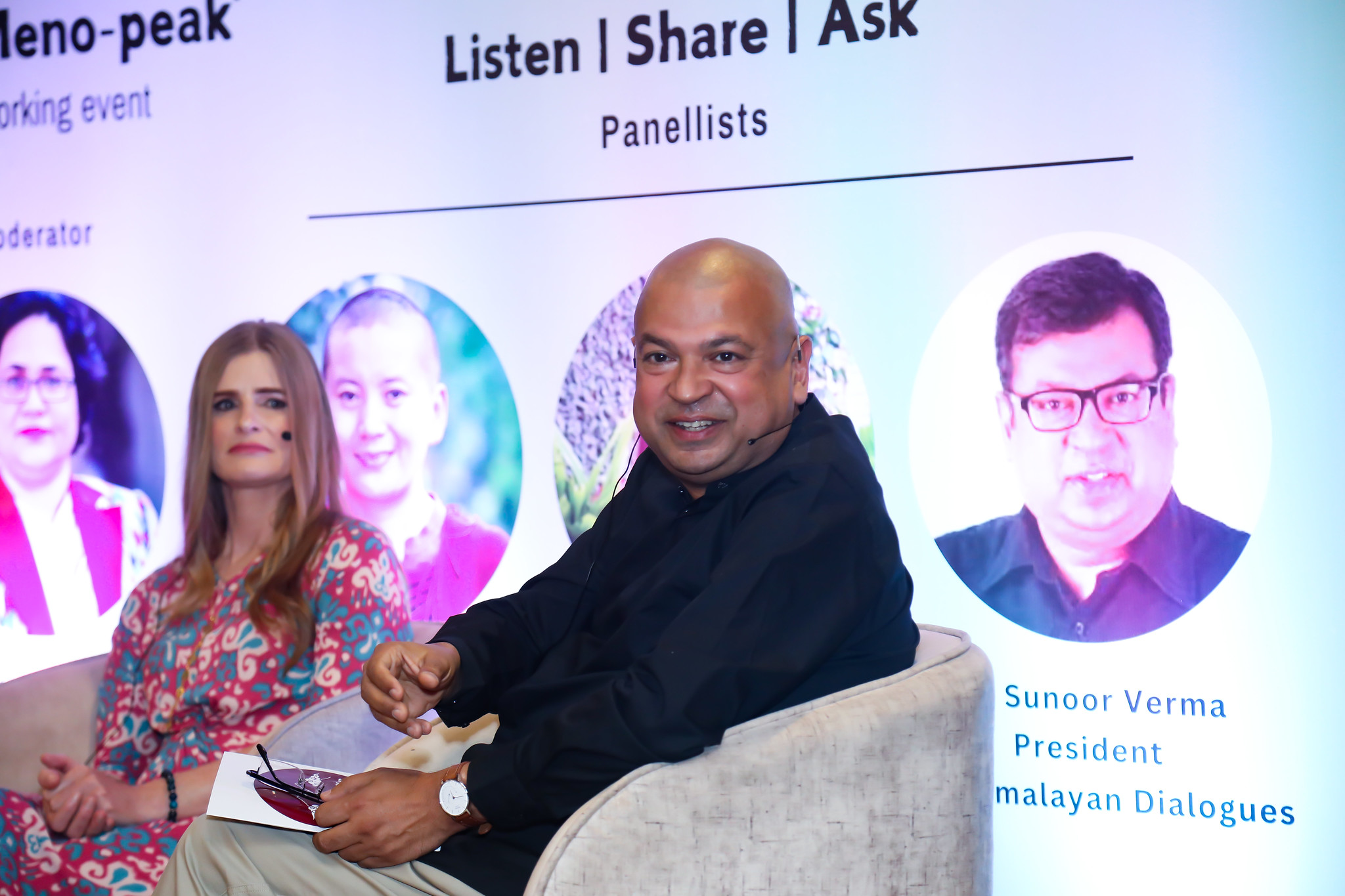 Don’t give up on us, men. Sunoor Verma responding to audience questions. Picture courtesy Australian Embassy Nepal
Don’t give up on us, men. Sunoor Verma responding to audience questions. Picture courtesy Australian Embassy Nepal
The complexities of menopause and Nepal’s unique socio-economic context led to some interesting discussions about potential solutions. When invited to share my thoughts, here is what I offered at different levels on the way forward. Some short-term and some more long-term:
Men: We need to listen and engage with women actively. Stepping outside our comfort zones and initiating conversations is a crucial first step. Don’t only listen but take notes.
Businesses: Make menopause resources readily available to your staff. Consider forming a health group that openly discusses both male and female sexual and reproductive health matters.
SRH (Sexual & Reproductive Health) Organizations: Rethink your strategies. Can we truly expect men to support women’s health if their own needs are neglected? Engaging them is essential.
Donors and Diplomats: Link aid to recipient countries to measurable improvements in women’s health indicators—a powerful measure of societal progress.
Women: Don’t give up on men! We may learn slower, but when engaged through the lens of our own health and family well-being, we often “get it” eventually.
This experience in #Kathmandu adds another chapter to a unique journey – being the only male speaker on all-female panels focused on women’s education, climate change and health in Geneva, Kigali, and now Kathmandu, respectively. Thank you to the Australian Embassy Kathmandu, Graduate Women International, and Observer Research Foundation for these incredible opportunities!
Published on LinkedIn on 04 June 2024
#Menopause #WomensHealth #WorkforceEquality #Kathmandu #AustraliaInNepal #Menstruation
